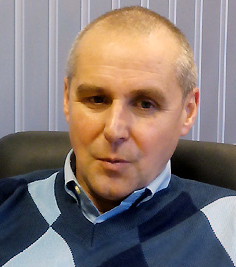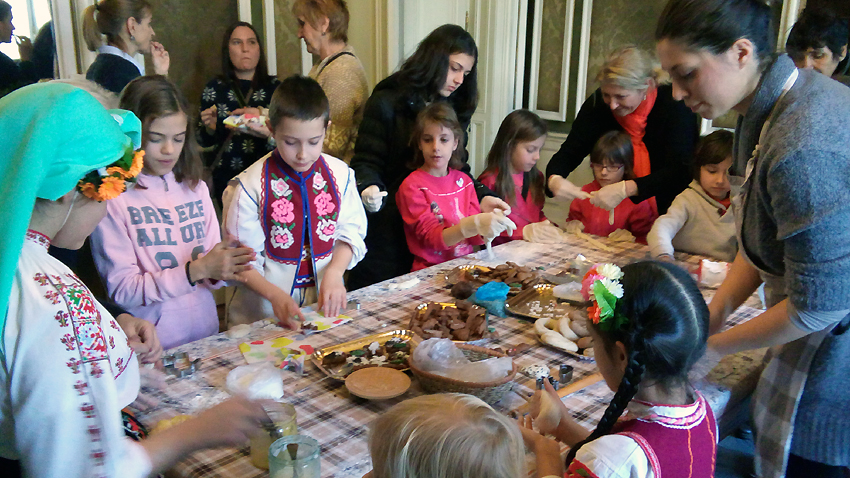 3
3
This year marks the 110th anniversary of the National Museum of Ethnography in Sofia and the 170th birth anniversary of its first director, prominent Bulgarian ethnographer Dimitar Marinov, Associate Prof. Dr Petko Hristov, director of the Institute of Ethnology and Folklore Studies with Museum of Ethnography, says.
 „The National Museum of Ethnography and the National Museum of Archeology are both the successors of Bulgaria's oldest museum, the Popular Museum. It emerged based on a collection of ethnographic and archeological artifacts shown at the First Trade Fair in Plovdiv in 1892. At the initiative of Dimitar Marinov and with serious support from the then Minister of Education, foremost Bulgarian ethnographer Prof. Ivan Shishmanov, the Popular Museum of Ethnography opened in 1906. It became National Museum of Ethnography in 1968.”
„The National Museum of Ethnography and the National Museum of Archeology are both the successors of Bulgaria's oldest museum, the Popular Museum. It emerged based on a collection of ethnographic and archeological artifacts shown at the First Trade Fair in Plovdiv in 1892. At the initiative of Dimitar Marinov and with serious support from the then Minister of Education, foremost Bulgarian ethnographer Prof. Ivan Shishmanov, the Popular Museum of Ethnography opened in 1906. It became National Museum of Ethnography in 1968.”
In the time between the two world wars the museum organized exhibitions of selected collections in European capitals including The Hague, Prague etc. Its brisk development was due to the tireless efforts of its longtime director, playwright St. L. Kostov, and of Evdokia Peteva-Filova, a key curator who was the wife of archeologist and politician Bogdan Filov. Currently an exhibition is on at the museum featuring the work of Evdokia Peteva-Filova with items that used to be part of collections that presented the Bulgarian traditions in Europe during the first half of 20 c. с

„Unfortunately, during the US bombings of Sofia during World War 2 the building of the Museum of Ethnography was destroyed and part of its exhibits annihilated. After the war the ethnographers at the museum worked very hard to rebuild the collection. In the hungry post-war years they toured the country with trucks packed with grain and exchanged artifacts for food”, Dr Hristov explains and adds that currently the museum keeps 55,000 units.
These include folk costumes, tools, shepherds' wood-carving pieces, utensils such as spoons, cups, distaffs and jewelry dated up to 200 years ago, says Assoc. Prof. Hristov:
„We keep a range of artifacts from the entire territory of the Bulgarian ethnicity - from Moesia, Thrace and Macedonia. More than half of all folk costumed come from Macedonia because the refugees who flocked to Sofia after the Ilinden Uprising, the Balkan wars and World War 1 would donate to the National Museum of Ethnography things they had brought from various parts of the Bulgarian ethnic territory. And here is a curiosity. The third in the world and the oldest in the Balkans electric Schindler elevator is found in the former Royal Palace of Prince Alexander Battenberg, where the museum is based. It was made in the late nineteenth century. The first one was mounted on the Eiffel Tower, the second - in a palace in Istanbul. The company has vowed to restore the facility. So this remarkable Schindler will become part of the permanent exhibition. The idea of this exhibition is to show how the modern culture of Bulgaria at that time was born from the traditional folk culture.”

The new permanent ethnographic exhibition in the museum which has not been maintained for decades will be open to the residents and guests of Sofia in 2018, when Bulgaria takes over the presidency of the EU. During the presidency the exhibition will be shown in Brussels.

Plans also include the opening of an educational center and a fund-raising campaign for it is already under way. The workshops are held for years at the museum ahead of traditional holidays (before March 1 - for making martenitsi tassels; before Easter - for painting eggs with traditional techniques; before Christmas - for making survachki and ritual breads) will be given a dedicated area at the Museum where children will be able to get in touch with Bulgarian traditions all year round. The area will display looms, a pottery wheel, ovens for baking ritual breads. This center could become an invaluable part of history lessons.
Donations for the creation of the Education Center at the National Museum of Ethnography can be made via a text message to number 17777 with the text "DMS MUZEY".
English Daniela Konstantinova
All Bulgarian masquerade games originate from the ancient rituals related to the birth of the sun around Christmas. With the adoption of Christianity, in order not to defile the newborn God, the custom was blurred. In the western..
The Roma community in Bulgaria is celebrating Vasilyevden /or Vasilitsa, Bango Vasili (literally the Lame Vasil)/, also known as the Roma New Year , reports the Amalipe Foundation. The Roma New Year combining in its traditions Christmas with St...
Today is Babinden (Midwives' Day) - one of the most beloved and authentic Bulgarian holidays deeply rooted in local folk tradition . Celebrated on 8 January in the new style calendar and January 21 in the old style, it is dedicated to the women who used..

+359 2 9336 661
